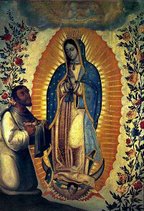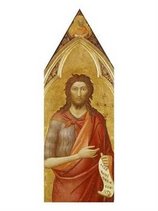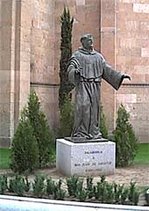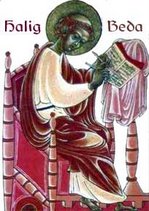
Various things symbolized by hands around the world:
Japan 1 stone, scissors, paper
Japan 2 stone, scissors, wrapping
Japan 3 snake, frog, slug
Japan 4 warrior, tiger, warrior's mother
Japan 5 the chief of a village, tiger, mother of the chief of a village
Japan 6 fire, snake, water
Indonesia elephant, human being, ant
Canada 1 stone, scissors, paper
Canada 2 stone, scissors, paper, dynamite
China 1 stone, scissors, wrapping
China 2 stone, scissors wrapping
Germany 1 stone, scissors, wrapping
Germany 2 stone, scissors, wrapping, well
Korea stone, scissors, wrapping
Myanmar general, gun, raising hands
Tonga stone, scissors, paper
USA 1 stone, scissors, paper
USA 2 eeny-meeny-miney-mo
USA 3 odds and evens
Australia stone, scissors, paper
New Zealand stone, scissors, paper
Russia stone, scissors, paper
France stone, scissors, leaf, well
Malaysia stone, scissors, paper
Vietnam 1 hammer, scissors, wrapping
Vietnam 2 hammer, nail, wrapping
Vietnam 3 well, scissors, leaf
Fiji stones, scissors, paper
Austria well, scissors, paper
Laos stone, scissors, paper
Cambodia stone, scissors, paper
Mongolia stone, scissors, paper
Indonesia
There is something like Rock, Paper, Scissors also in Indonesia. This is an example that I heard from an Indonesian. I assume there must be a lot of variations of the game there too, just as we have many different ways of describing Janken as well as ways of actually doing it. Therefore, please read the following as examples of many forms.One Thumb up out of a clapped hand is Elephant.Showing one index finger is Person.Showing one little finger is Ant.Since the Elephant is big and strong, it beats Person.Person beats the much smaller Ant.However, Ant beats Elephant. Why? "Because if an ant gets into an elephant's ear, the elephant can't stand the itchiness and can't do anything!"I suggest that the readers try the other country's form of Rock, Paper, Scissors with their friends.Translated by M. B-san.
Austria
tudents from Universitaet Wien were kind enough to contribute to this column. They have the same type of Rock, Paper, Scissors as in Japan, except that Goo[gu:] is not Rock but Well. Instead of making a fist, you make a shape like a cylinder, and this is the hole of the well. Paper floats in a well, so Paper beats Well. Scissors sink in the Well, so Well beats Scissors. And of course Scissors cut Paper.Dr. Sepp Linhart of Universitaet Wien has been conducting resarch on "fists," including a serious study of various forms of "fists" in Japan. I was wondering how Austrians knew about Japanese "fists," and now I know the answer. Austria has Janken(Rock, Paper, Scissors) just like ours.The Multiculturalpedia has pages of contributions from students in the Japanese language department of Universitate Wien(Autumn 1998). Our sincere gratitude to a teacher and students of the department. The teacher introduced this site to Dr. Sepp Linhart. She told us that Dr. Linhart had commented positively on this site, saying "It's interesting to collect information from people all over the world." Translated by M. B-san.
France
I didn't know there were so many variations of Rock, Paper, Scissors in Europe. This is typical of "preconception" that makes us "believe" something in a certain way. France also has Rock, Paper, Scissors) somewhat similar to Austria's. I asked a Frenchman what they do when they decide who goes first or when they choose pieces of cake which vary in size, etc.There are many ways, he told us. "You don't have anything like Rock, Paper, Scissors, do you?" I asked casually, expecting nothing. "Oh, sure we do!" was the answer.The French style is as follows.Four hand gestures instead of three.Rock, same as Japanese Goo.Well, not quite, but the same as the Austrian style, like a cylinder.Leaf, same as Japanese Pa[pa:], opening all the fingers, which is different from the Austrian style.Scissors, same as Japanese Choki, showing index finger and middle finger.Who beats who?Well beats Rock and Scissors, because both of them sink in the well.Scissors beats Leaf, because it can cut leaves.Leaf beats Well by covering it, and beats Rock by wrapping it up.Rock beats Scissors by dulling the metal.After explaining this, he suddenly started to talk about scuba diving. Divers have to wait until the tide is right. During that time, especially on cold winter days, they play Rock, Paper, Scissors)to kill time. He did his best to explain all this to me, a person who doesn't understand French, with his fresh acquired Japanese vocabulary. He wanted to emphasize that they use it only to kill time.He had heard that we are making a kind of cultural encyclopedia, in order to encourage cross-cultural understanding and mutual respect by sharing it all over the world. We are trying to introduce aspects of various cultures as much as possible; however, this is not just cold information, but we hope filled with people's goodwill and warmheartedness. We pass on our sincere gratitude to him for sparing multiculturalpedia his time. We consider this a living cultural encyclopedia.Having four shapes for hand instead of three is interesting enough. Please do try it once, when you have a chance. I tried with my children at home, and the younger one didn't change from Rock; but the older one picked up Well in place of Rock.I may have been wrong in thinking that Rock, Paper, Scissors was invented somewhere in Asia, such as China, Korea, Japan or Indonesia. There definitely has been cultural contact between East and West, because there is such similarity everywhere. It's pleasant to imagine that somewhere, sometime a long, long time ago, somebody introduced Rock, Paper, Scissors to the other side. I wish I had been there. Rock, Paper, Scissors has its echoes in time. Translated by M. B-san.
Former Yugoslavia
It is not easy to solve a conflict between nations. Also it is not easy to respect each other when two parties are fighting. However, we have to overcome that for the sake of mankind.My Yugoslavian student, who was busy with all kinds of preparations for her return home, helped me by sparing some time from her busy schedule. She and I will share the following with you, in hopes you will feel closer to the people there, and someday if you meet them, you will something to share.Do you have Rock, Paper, Scissors in Yugoslavia?Yes, we do. But it's different from the Japanese one. We play it when we have more than three people.She started to demonstrate: turning the Goo shape fist around with the words "Zimi, zami, zum!" you show either Goo or Pa (clasped fist or open hand).It is the opposite of the idea of the majority rule, because single Goo or Pa wins.For example, if five people are there and four show Pa and one person shows Goo, Goo wins.Then, when there are a lot of people, it will take a long time!" was my first reaction. The answer was "We divide into smaller groups.""When do you use it?""We often use it to devide into teams.""What would you do when there is only one piece of cake and there are five people who want it?""I think we'll divide the cake."I remember one episode by Ryotaro Shiba, a famous Japanese author who wrote many historical novels. In Mongolia, he found five children gathered around one piece of chewing gum. A girl divided it."When we choose one person [bringing her hand to her chest], I have, for example, five toothpick-type sticks between my index finger and the middle finger, since there are five people here. One of the sticks has a red mark on it."The participants each pick a stick, and the person who picks the one with the red marak is the winner. It's a kind of lottery.Listening to my Yugoslavian friend's voice saying "Zimi, zami, zum!" I had a strange sensation of feeling close to Yugoslavia, visualizing children shouting "Zimi, zami, zum!""What does it mean?"". . . I don't know. I don't think there's any meaning."Whatever it meant, it had a fascinating sound.Here, we have to add our usual reminder that this does not necessary mean this type of Rock, Paper, Scissors is common all over Yugoslavia. Maybe it's limited to area she's from.After that I talked with her about our vision of this Multicultural-Pedia. We are hoping that children all over the world see this site and feel closer to other countries, by providing descriptions of these customs and games, such as Rock, Paper, Scissors, and getting feedback through the Internet.Translated by M.B-san.
Germany
Very insightful site. In Germany we called this game "ching chang chong". It's the German interpretation of the sound of any Asian language, and in fact it somewhat sounds like "Janken Pon" (The Japanese version), don't you think? So apparently to Germans this game originated in Asia. We have both versions, the rock-paper-scissors and the one including the well. (Paper wraps around well, rock & scissors sink.) Christian-sanSan Francisco, CA USA - Sunday, June 24, 2001(JST)
For more information see the original site.





































